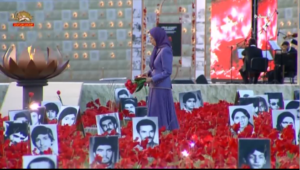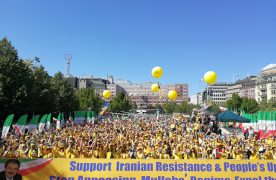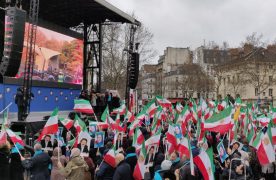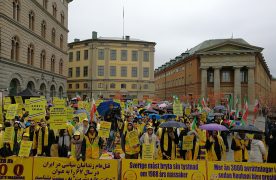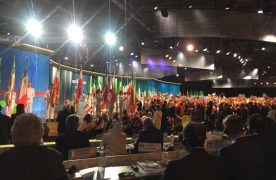
En regimkritisk ayatolla, som sitter frihetsberövad i det ökända Evin-fängelset i Teheran, har läckt ut ett brev inifrån fängelset adresserad till FN:s råd för mänskliga rättigheter, enligt organisationen Human Rights and Democracy Activists på måndag.
Ayatolla Hossein Kazemeini Boroujerdi är en rättslärd som avvisar den iranska regimens doktrin om velayat-e faqih (prästerskapets absoluta envälde) och istället förespråkar en separation mellan kyrka och stat. Han greps, den 8 oktober 2006, tillsammans med några av sina anhängare när regimens underrättelsetjänst och statliga säkerhetsstyrkor genomförde en räd mot hans bostad.
I sitt brev går Boroujerdi till hård attack mot prästerskapets totalitära styre för dess orättfärdiga politik mot religiösa och etniska minoriteter i Iran, förekomsten av könsdiskriminering samt genomförande av omänskliga straff som hängning, stening, piskning och godtyckliga arresteringar. Han tillskrev dessa fri- och rättighetskränkningar till regimens teokratiska karaktär.
Brevet, som lästes upp den 23 september i FN:s råd för mänskliga rättigheter i Genève, har även lämnats till FN:s högkommissarie för mänskliga rättigheter, Navi Pillay, ordförande för FN:s råd för mänskliga rättigheter, Sihasak Phuangketkeow, samt till medlemsstaternas företrädare i rådet.
Nedan följer den engelska översättningen av brevet.
To the United Nations Human Rights Council,
Dear Mr. President and honorable representatives,
Please accept my warmest regards from the repressive and intolerable prison of the Islamic Republic of Iran.
As you well know, throughout history, infusing religion into the affairs of the state has paved the way for the growth of religious conflict, extremism and the emergence of theocracies which have committed treachery and extensive crimes under the guise of religion. Among the outcomes of this are the institution of unjust laws against religious and ethnic minorities, gender discrimination and enacting inhumane sentences such as hanging, stoning, flogging and imprisonment.
The ruling regime in Iran, which is blatant example of a theocracy, does not have the least commitment to the freedom of the press, freedom of expression or freedom of opinion. In such circumstances, religious minorities, including Sunnis, Christians, Zoroastrians, Baha’is, and Jews, alongside Dervishes and even Shiites who believe in a different interpretation of Islam, are subjected to abuse and pressures. Upon voicing the faintest protest or criticism, they are arrested, receive hollow charges in illegal tribunals without access to legal representation, and are condemned to heavy sentences, including hanging.
Violations of the UN Declaration of Human Rights and ignoring international laws by the velayat-e faqih [absolute clerical rule] regime became engrained in it since its inception in 1979. Since then, suppression and torture of dissidents has become more intense, to the extent that after the presidential elections of June 2009, there were no longer any lingering doubts about the dictatorial nature of this regime.
Today, all Iranian families are grieving or in pain. Under the burden of the existing inquisitions and atmosphere of terror, many people have either been forced to conceal their true beliefs or else leave the country. Throughout the world, the Iranian regime which purports to be Islamic is synonymous with injustice and cruel acts.
In addition to this, the tyrannical regime ruling Iran incites conflicts and wars in other lands while continuing with its nuclear and weapons escapade, thereby endangering global peace and security. This has placed the geopolitical situation in the Middle East on a time bomb.
The international community is an organically linked whole. Resolving crises emanating from far out regions and instituting democracy and peace across the world will not be possible without the involvement of everyone in that community.
Therefore, it is expected that a committee of international jurists and experts be formed immediately to investigate the adverse consequences of a theocracy by citing the factual evidence available in Iran and the Middle East. The international community must enact practical measures to adopt UN resolutions and work towards the separation of church and state [in Iran].
The international community must also adopt a comprehensive measure to force the suppressive state ruling Iran to accept a free referendum under international auspices so that the oppressed people of this land can rule over their own fate.
I sincerely hope for a global solidarity that would free us from these crises.
I sincerely hope for the establishment of peace and freedom across the world.
Seyyed Hossein Kazemeini Boroujerdi
Evin Prison






